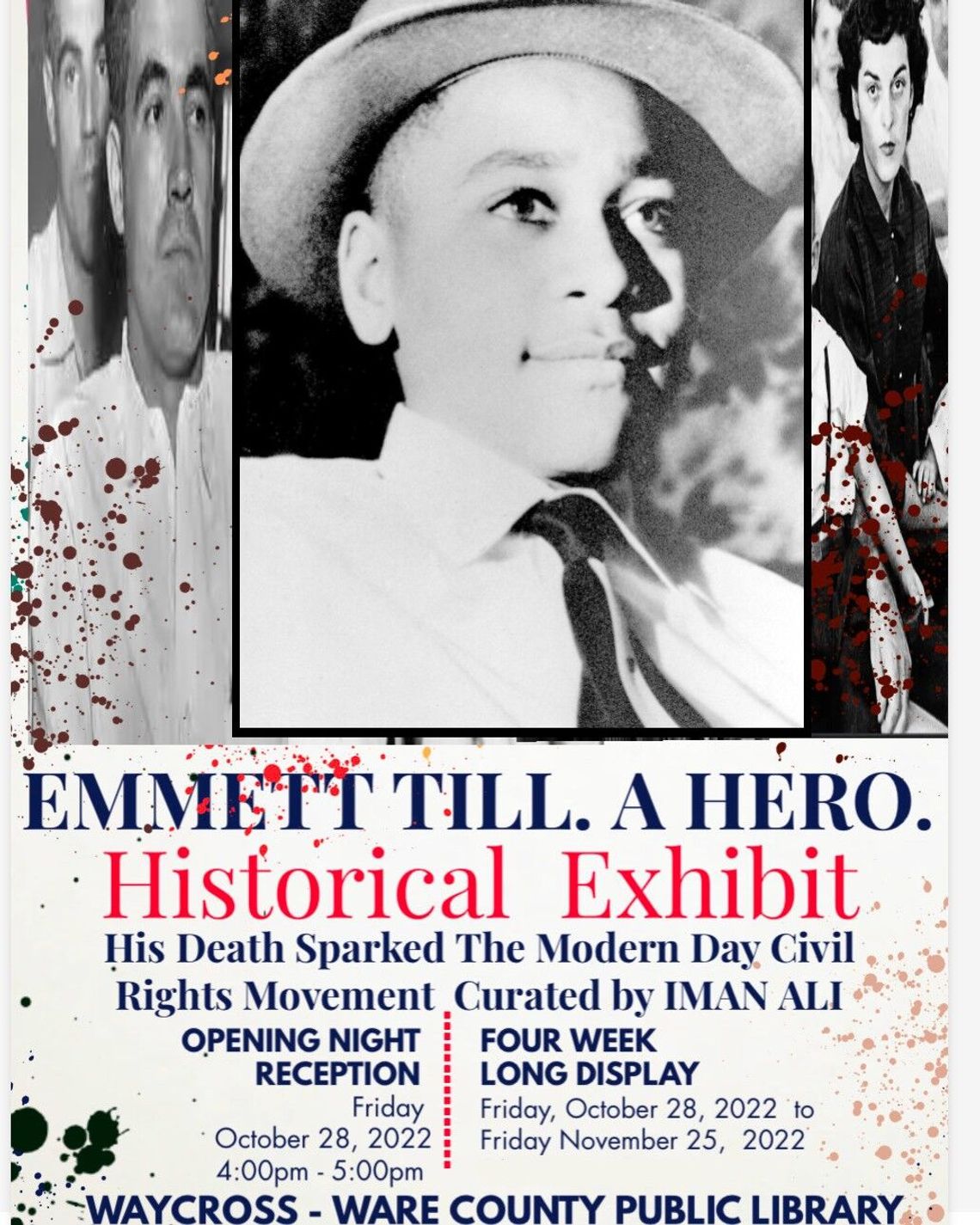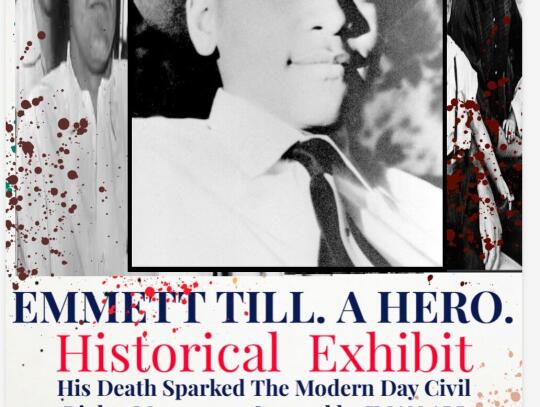The Waycross-Ware County Public Library, 401 Lee Avenue, will host an historical exhibit of props from the upcoming movie, “Till.”
A reception will be held from 4 p.m. to 5 p.m. Friday, October 28, to open the exhibit, curated by Iman Ali.
The exhibit will be available for viewing during library business hours Monday and Thursday 10 a.m.-8 p.m., Tuesday Wednesday and Friday, 10 a.m.-6 p.m. and Saturday 10 a.m. to 2 p.m.
The duration of the exhibit will be through Friday, November 25. The movie is scheduled to be released in January.
Emmett Louis Till was a 14-year-old African American boy who was abducted, tortured, and lynched in Mississippi in 1955, after being accused of offending a white woman, Carolyn Bryant, in her family's grocery store. The brutality of the deathand the fact that his killerswere acquitted drew attention to the long history of violent persecution of African Americans in the United States.
Till, who was born and raised in Chicago, posthumously became an icon of the civil rights movement that began shortly after his death. Ali’s connection to the tragedy comes through her association with Till’s mother, Mamie Till-Mobley. Till-Mobley was among the subjects the journalist, who has homes in Waycross and on St. Simons Island, included in her mini-series “Women of the Movement.”
Ali became acquainted with Till-Mobley while the journalist was a TV news producer in Chicago, where Emmett Till was born and raised. Till-Mobley’s relentless quest to prove her son’s innocence and gain justice for his name through the years is the basis for the film.
During summer vacation in August 1955, Till was visiting relatives near Money, Miss., in the Mississippi Delta region. He spoke to the 21-year-old Bryant, the white, married proprietor of a small grocery store there.
Although what happened at the store is a matter of dispute, Till was accused of flirting with, touching, or whistling at Bryant. Till's interaction with Bryant, perhaps unwittingly, violated the unwritten code of behavior for a black male interacting with a white female in the Jim Crow-era South.











